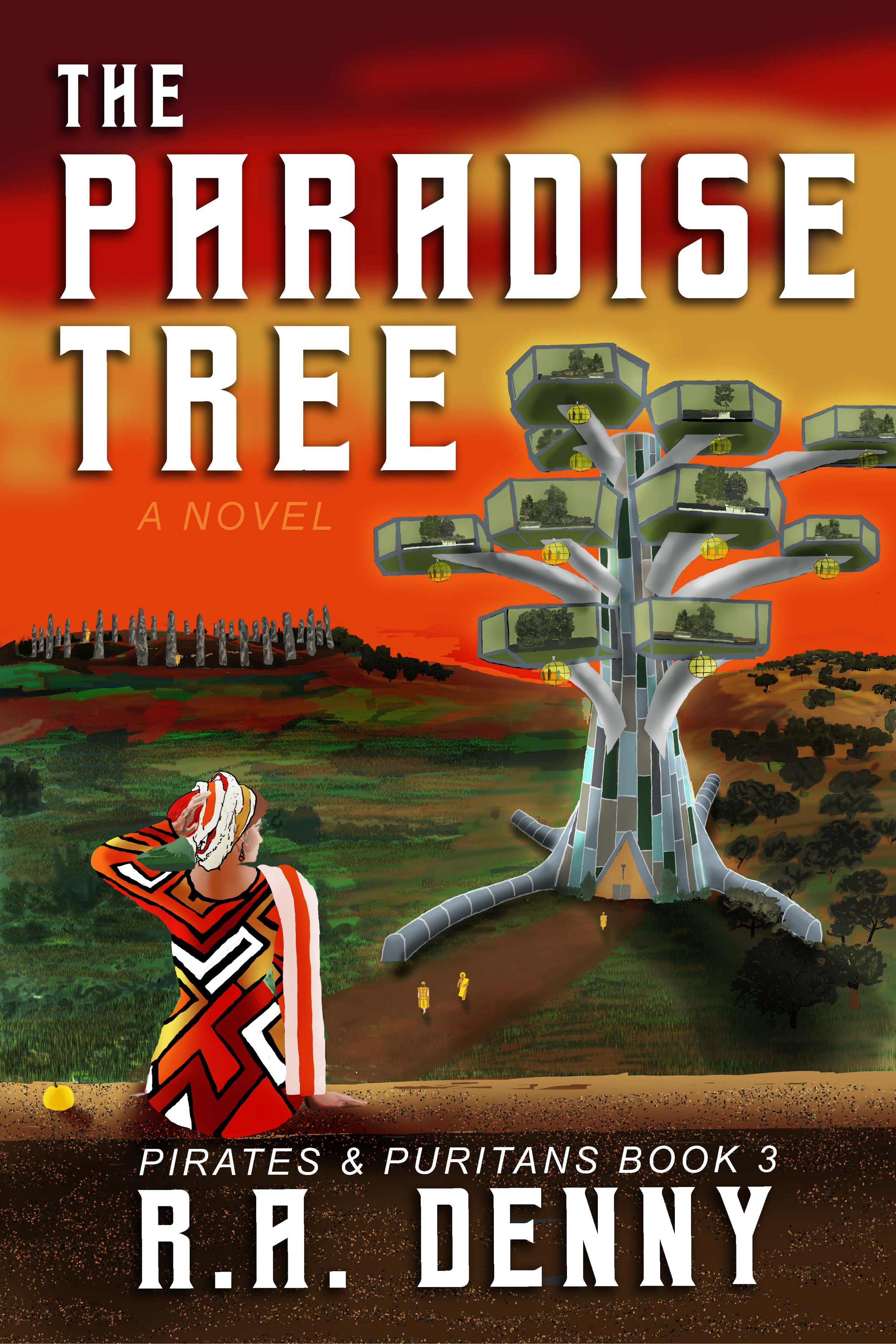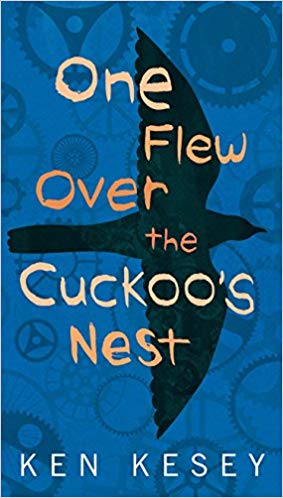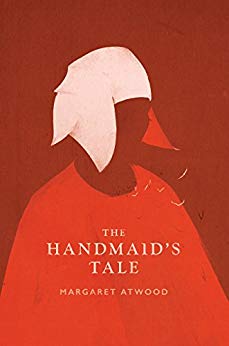Warning: Spoiler’s Below!!!
Author’s Note
In December of 2012, I was a Deputy Attorney General, prosecuting criminals, which meant that I regularly witnessed the worst side of human nature. I longed to escape to a world where unlikely heroes sought to find and do the right thing.
A family outing to see the movie, The Hobbit, An Unexpected Journey, changed my life. As we were leaving, I started spouting off information about how C.S. Lewis and Tolkien formed a writing group called the Inklings. My son Ryan said, “We could do that.” I laughed. Then he turned it into a challenge, and R.A. Denny the fantasy author was born.
By day I continued my work as a criminal prosecutor, but by night I escaped to the world of Tzoladia. Starting the project was fun and flowed easily, but I never would have completed my five book series without the help of my “Inklings.” It has truly been a family affair. Many of my best ideas came from bouncing my thoughts off of my son, author Ryan Hauge, who also spent countless hours formatting the books and encouraging me not to give up my dream. “Do what you love,” he advised. After completing the draft of my first book, I retired from the Department of Justice to do what I love: writing. I have never looked back.
In addition, I read drafts of this entire series to my father, Cleve Denny, who patiently listened and made suggestions. He went to be with the Lord at age 92. I profoundly miss his wisdom and encouragement. My Dad always made me feel like I could rise up to the stars, even when the weight of the world was crushing me down.
My first draft of this book was entitled Mud, Rocks, and Trees. The idea of three young people going on a quest from three unique regions came to me when I was listening to a lecture from The Great Courses tape in which Professor Gregory Aldrete describes the way that ancient societies developed differently based on the environment in which the people lived.
A naturally curious person, I love to jump down rabbit holes to do research. Hidden within my books are dozens of tidbits of real history, science, and traditions. I like to picture readers having their “ah-ha moments” as they recognize a piece of real-life in fantasy.
So what in this fantastical novel is based on real-life? It’s time to find out. I’ve listed some below. I would love to hear from you about others that you have discovered. I have placed this author note at the end of the novel, due to the spoilers below.
The Tzoladian Empire
Many places in Tzoladia correspond to places on earth:
· Ortaz Sea = Black Sea
· Hattom = Cappadocia (underground cities exist)
· Arvuk = village along ancient river swallowed by Sea of Azov.
· Kalpok = Carpathian Mts. Romania (Mesmeringa’s are imaginary)
· Alfon River = Olt River (waterfall is imaginary)
· Lanzur River = Danube River
· Vargar River = Mures River, Romania
Plato spoke of Atlantis. Could Atlantis have been buried under the Black Sea in a great flood?
Trees
· Glides = patagium, soft flaps of skin on flying squirrels. Wing-suit gliding is an extreme sport, but due to bone density, gliding from tree to tree would not be possible. The largest gliding mammals, colugos, weigh up to 4 lbs.
· Mesmeringa trees = shaped like Kapok trees, leaves and hanging pods like gigantified Moringa trees. Moringa seeds purify water. Moringa leaves contain protein and other nutrients, and have medicinal qualities.
· Whistling language = The whistlers of Kuskoy, Turkey and La Gomera in the Canary Islands still communicate across long distances with a tonal whistling language.
· Writing with knots in strings = Quipu, used by the Incas.
· Colonization = The ancient Greeks sent people away in ships to found new colonies.
· Banishment = A form of punishment used by many ancient civilizations that is still used by some Native American tribes today
· Elder Council = Gerontocracy. Plato wrote that elder men should rule and the younger should submit.
· Unanimous Decisions = loosely based on Iroquois.
· River men = Varangians (Vikings), who ran a lucrative slave trade by capturing Slavs, transporting them downriver, and selling them in Constantinople.
· Lormonkeys = Brachiate and whoop like gibbons, bite like slow lorises, and are the size of chimpanzees. Slow lorises lick a gland on their arms to obtain a secretion that when mixed with saliva creates a toxic bite.
· Poetic song about Grumbler causing first Gliders to fall from paradise = C.S. Lewis portrays a woman who is reduced to nothing but a grumble in The Great Divorce
Rocks
· Hibernation = Herodotus wrote in The Histories about a tribe of people who hibernated for six months out of the year. The fat-tailed dwarf lemur is a primate that hibernates. Russian peasants in the Pskov government hibernate during winter famines. Family members take turns watching. Scientists are investigating the possibility of astronauts hibernating.
· Meditation = Some Tibetan monks can raise or lower the temperature of their bodies with meditation.
· Naturally Armored = Pangolins are mammals with scales. Pangolins are adorable creatures that just happen to be the most trafficked animals in the world. Save the pangolins!
· Spinning Rituals = loosely based on whirling dervishes in Turkey
· Yakamas = Combined attributes of llamas, yaks, and skunks. Some people claim that yaks have pink milk.
· Chamois = real chamois
· Hydois = No animal has both canines and horns, (except for possibly the golden jackal, which sometimes grows a tiny horn at the back of its skull). See also the extinct Carnotaurus, which means “meat eating bull.”
· Jug kebabs = Testi kebabs served in Turkey.
· Dualistic religion = Some forms of ancient Zoroastrianism were dualistic and emphasized a cosmic struggle between two opposing gods. See also Manichaeism.
· Lizard Skin Drug = Lizard skins can make people high. Note that the initials for Lizard Skin Drug are LSD.
Mud
· Webbed Feet = Many people (even one of my relatives) are born with webbed toes). Some say mermaids were created as a result.
· Underwater sight = The Moken people, called Sea Nomads, have adapted so that they can see underwater.
· Mud region = The location would now be under the Sea of Azov. But the villages are patterned after ancient Mesopotamia.
· Cylinder seals = Ancient carved stone cylinders seals were common throughout the Near East. In the Bible blue is the color of the stone of the throne of God. See Exodus 24:10 and Ezekial 1:26. Many Bible translations refer to the stone as sapphire, but it was more likely lapis lazuli.
· Repetitive Dreams = Joseph in the Bible spoke of repetitive dreams as sent from God in Genesis 41:32. Many ancient cultures such as the Egyptians interpreted dreams.
· Leviathan = Mushussu, the Mesopotamian dragon from the Ishtar Gate, and the leviathan from the Bible, although its feet are webbed.
· Landi = Galli, men who actually castrated themselves during the worship of the Phrygian goddess Cybele. They bleached their hair and wore women’s costumes, mostly of yellow.
· Gepathi = A combination of women who pretend to be caring individuals, but are truly narcissists.
· Wadukian sexual ritual = Ancient Sumerian rituals.
· Temple of Waduk = Ziggurat
· Tides of Waduk = In the Bay of Fundy in Canada, tides reach 50 feet. These tides result from the unique shape of the Bay of Fundy. Another similar phenomenon may be found in the Severn River in Great Britain.
· Mudflats = The Wadden Sea off the coast of Denmark, where mud trekking has become popular.
· Mud volcanoes = Active in the Sea of Azov region.
· Webby hospitality = Greek xenia, which is important throughout Homer’s poems.
· Royal child raised in anonymity = Numerous stories tell of royal children being raised in anonymity in some remote place, including King Arthur, but my idea for Amanki’s background came from tales of Cyrus the Great of Persia being raised by a shepherd.
Samalitans (Cat riders)
· Cave lions = Cave lions (panthera spelaea) were giant lions that are now extinct. Frozen cave lion cubs have been found, and some scientists speculate that DNA from these cubs could be used to bring back cave lions. They were much larger than today’s lions, so I imagine that perhaps people with great skill and courage could ride them. Even today, some ligers grow to an enormous size. However, the problem of keeping such lions well-fed would probably make their domestication for riding quite impractical.
· Lion/Human interaction = I watched videos of Kevin Richardson interacting with African lions, and I observed my own pet kitty. Ramses the Great kept a pet lion named “Slayer of his Foes.” In the Sundarbans in Bangladesh, fishermen wear masks on the back of their heads to protect them from tiger attacks.
Sparaggi Horsemen
· Sparaggi = Ancient Scythians. According to Herodotus, Scythian warriors scalped their victims, drank their blood, made their skulls into cups lined with gold, and used their skin to make leather items. Archaeology has confirmed these claims.
· Bladar = The name Bladar comes from Bleda, Atila the Hun’s brother.
· Sparaggi horses = Arabians and Akhal-Teke. Instead of the stocky horses of the Scythians, the Sparaggi horses look more like Arabians, which I love to ride.
· Royal child hostages = Atila the Hun and the Roman General Aetius were child hostages who eventually met each other in battle.
· Severed hands for gold = Archeologists have found piles of severed hands in Egypt which they believe were trophies which ancient Egyptian soldiers turned into the king in exchange for gold.
Miscellaneous
· Animals predicting earthquakes = Some animals can sense earthquakes before they occur. See for instance the study of frogs abandoning a pond in L’Aquila, Italy.
· Guest star (new star) = Supernova explosion. These can last for months and can be as bright as ¼ of the moon.
· Prophecy about a star = Star of Bethlehem
· Society of Word = 12 men like 12 disciples in the New Testament. The need for studying wisdom for 20 years before joining the Society is based on Caesar’s observations of druid priests. The rule that the Society does not write down its wisdom is from Plato’s Phaedrus, in which he tells a fable in which writing creates forgetfulness because people stop using their memories.
· Roc, magpie, and duck constellation = Cygnus (each group named after the bird with which their society was familiar), A supernova explosion occurred in Cygnus thousands of years ago, leaving behind the Cygnus loop, which can be seen under the wing of Cygnus.
· Zoltov’s royal clothing = Semitic god, Dagon.
· Rival Royal buried alive = Artaxerxes III of Persia buried his own sister alive.
The Bible
· Advice from Elder Lepton to Brina = God’s advice to Cain before he kills his brother, Abel, in Genesis 4:7.
· Amanki wrestling with Adon = Jacob wrestling with the angel of God in Genesis 32.
Conclusion
Truth is often stranger than fiction and creative works of fantasy are nothing more than the separating, gathering, and reorganizing of what we experience in the real world. Thanks for joining me on this journey!
Lastly, if you enjoyed The Emperor’s Harvest and want to make my day, please leave a review! Writing is a lot of fun, but it’s a lot of work too, and for me, the best reward would be to hear from you. Thank you!
R.A. Denny

















